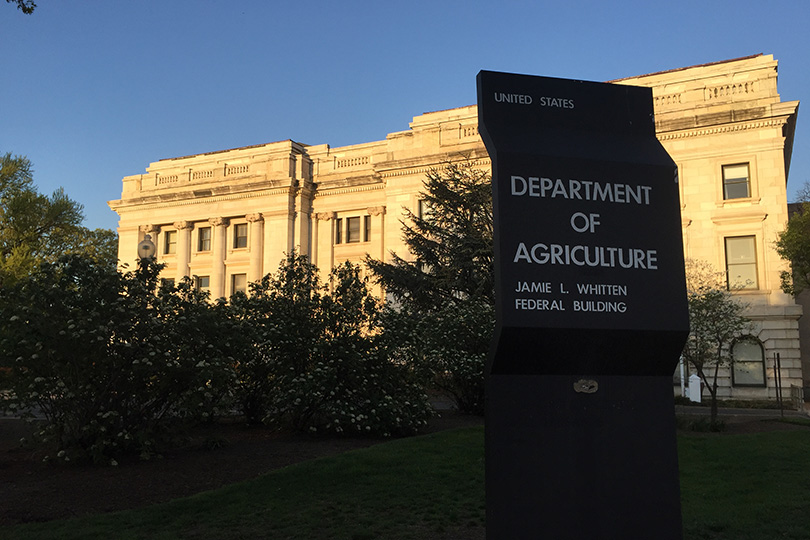By Jennifer Dorsett
Field Editor
The Commodity Credit Corporation (CCC) may soon be receiving a boost to its borrowing cap, effectively catching up to inflation since the limit was last raised in 1987.
Legislation introduced by U.S. Reps. Austin Scott, a senior House Agriculture Committee member, and Sanford Bishop, who chairs the House Appropriations panel overseeing the U.S. Department of Agriculture’s (USDA) budget, would raise the limit from $30 billion to nearly $68 billion.
While the recent Coronavirus Aid, Relief, and Economic Security Act (CARES) Act provided the CCC with a $14 billion replenishment, industry analysts say that won’t be enough, citing USDA’s need to address the wide-ranging adverse economic effects of COVID-19 on U.S. farmers and ranchers.
“When we talk about the long-term impacts of COVID-19 on our national economy, we cannot forget the negative impacts it will have on our food supply chain,” Scott said in a release. “That’s why it is imperative we increase USDA’s ability to implement and maintain critical farm bill programs by raising the Commodity Credit Corporation’s authority.”
Scott noted the additional funding will give USDA greater flexibility to maintain farm bill programs that support farmers and ranchers and to help stabilize domestic agricultural markets.
The CCC was created under the first farm bill in 1933 to fund agricultural programs. The agency is authorized to participate in lending, buy and sell farm commodities and undertake activities that increase production, stabilize prices, ensure adequate supplies and facilitate efficient distribution of agricultural commodities.
Programs funded through CCC include Dairy Margin Coverage, the Conservation Reserve Program, Agriculture Risk Coverage, Price Loss Coverage and the recent Market Facilitation Program created by President Donald Trump to assist farmers and ranchers impacted by high tariffs during trade wars.
“The COVID-19 national emergency has had a tremendous impact on agriculture,” Texas Farm Bureau (TFB) National Legislative Director Laramie Adams said. “To meet the needs of all the farmers and ranchers who have been affected, USDA will need additional resources, so we believe this bill is a step in the right direction.”
Economists say the CCC borrowing limit has not been adjusted for inflation since it was last raised in 1987, leaving the organization with increasing expenses but a flat borrowing authority limit.
“If adjusted for inflation, the borrowing limit for the CCC would be nearly $68 billion, providing the U.S. Secretary of Agriculture with additional financial resources needed to stabilize and support farm income and commodity prices, assist in ensuring adequate supplies of agricultural products to consumers and facilitate the distribution of commodities—all much-needed support programs given the unprecedented market volatility and supply chain disruptions resulting from COVID-19, which comes on the heels of trade-related demand uncertainty and consecutive years of natural disasters,” a recent American Farm Bureau Federation report stated.

